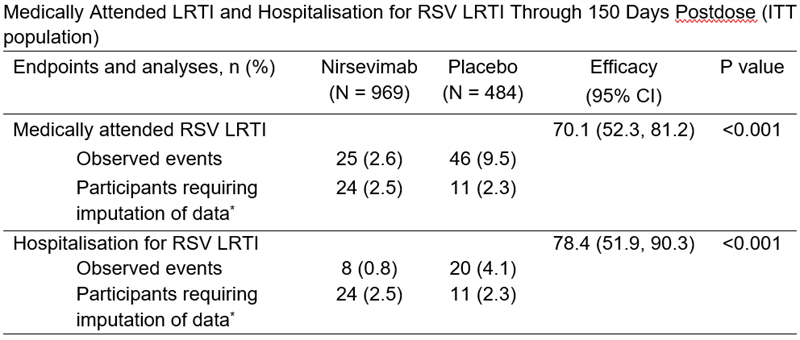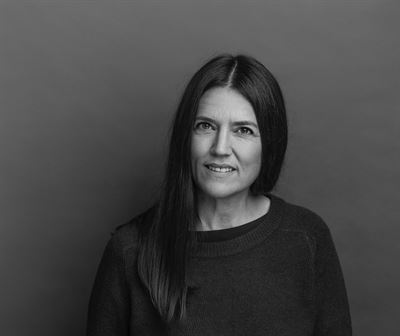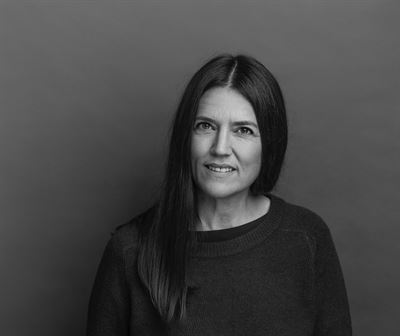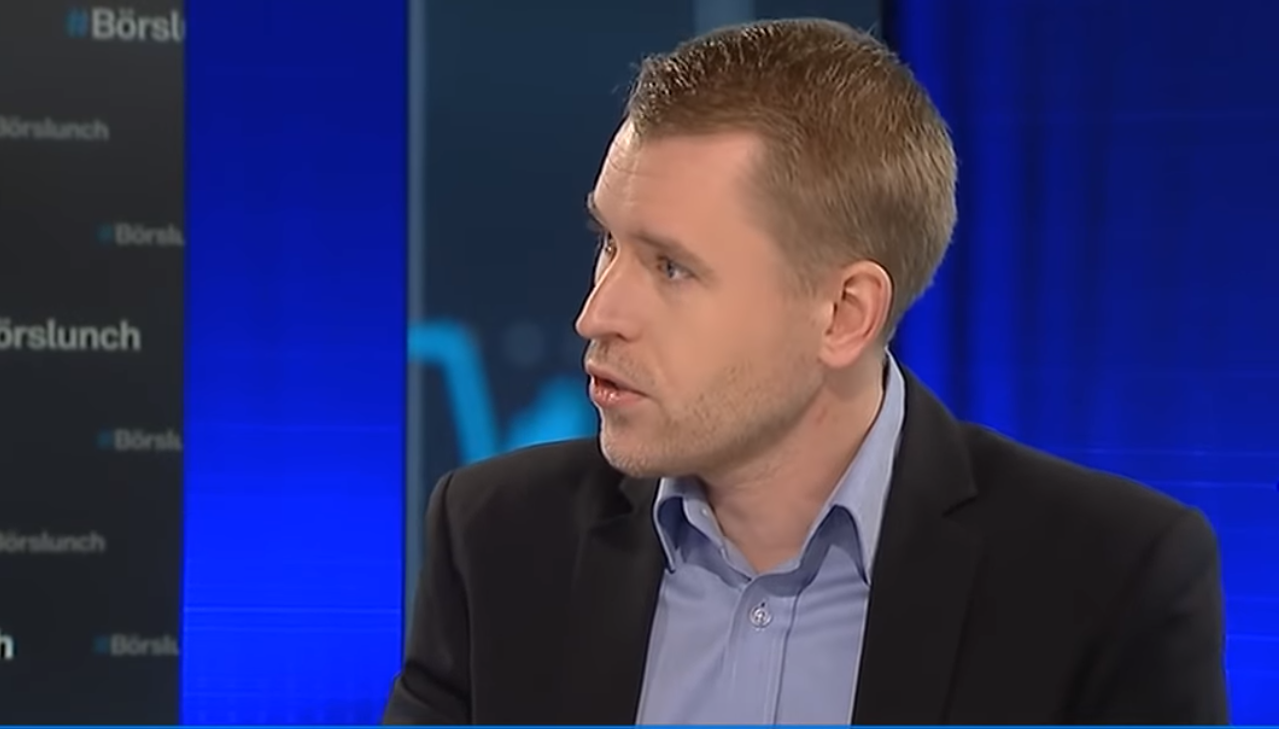Marknadsnyheter
Beyfortus approved in the EU for the prevention of RSV lower respiratory tract disease in infants

First and only single-dose RSV preventative option approved for broad newborn and infant population.
European Commission grants first approval worldwide following positive CHMP opinion in September.
AstraZeneca and Sanofi’s Beyfortus (nirsevimab) has been approved in the European Union (EU) for the prevention of respiratory syncytial virus (RSV) lower respiratory tract disease in newborns and infants during their first RSV season.1 Beyfortus is the first and only single-dose RSV passive immunisation for the broad infant population, including those born healthy, at term or preterm, or with specific health conditions.
RSV is a common and highly contagious seasonal virus, infecting nearly all children by the age of two.2,3
The European Commission is the first regulatory body to grant approval to Beyfortus.1 The approval was based on results from the Beyfortus clinical development programme, including the MELODY Phase III, MEDLEY Phase II/III and Phase IIb trials,1,4-11and follows the recommendation by The Committee for Medicinal Products for Human Use (CHMP) of the European Medicines Agency in September 2022.12
In the pivotal MELODY efficacy trial, Beyfortus met its primary endpoint of reducing the incidence of medically attended lower respiratory tract infections (LRTI) caused by RSV by 74.5% (95% CI 49.6, 87.1; p<0.001) vs. placebo through day 151 (a typical RSV season) with a single dose.1,4-9 Beyfortus also demonstrated a comparable safety and tolerability profile to Synagis (palivizumab) in the MEDLEY Phase II/III trial, with occurrence of treatment emergent adverse events (TEAEs) or treatment emergent serious adverse events (TESAEs) similar between groups.1,10-13
Silke Mader, Chairwoman of the Executive Board and Co-founder of the European Foundation for the Care of Newborn Infants (EFCNI), said: “Respiratory syncytial virus represents a health threat among infants, and each year we see the impact it can have on families, healthcare providers and the healthcare system. At EFCNI, we are excited about the opportunity to expand prevention efforts to all infants, as we believe this can help ease the current emotional, physical and financial burdens of RSV.”
Iskra Reic, Executive Vice President, Vaccines and Immune Therapies, AstraZeneca, said: “Beyfortus is the first single-dose preventative option against respiratory syncytial virus to gain approval in Europe and is also the first and only preventative option approved for a broad infant population. Today’s marketing authorisation of Beyfortus marks a significant achievement for the scientific community and addresses a persistent, global unmet need in RSV prevention.”
Thomas Triomphe, Executive Vice President, Vaccines, Sanofi, said: “Today is a landmark day for RSV prevention, as decades of research and development come together in the world’s first approval of a broadly protective option against respiratory syncytial virus disease. Once launched, Beyfortus will offer parents the ability to help protect their babies during their first RSV season.”
RSV is the most common cause of LRTI, including bronchiolitis and pneumonia in infants.14 It is also a leading cause of hospitalisation in all infants.15-18 Globally, in 2019, there were approximately 33 million cases of acute lower respiratory infections leading to more than three million hospitalisations, and it was estimated that there were 26,300 in-hospital deaths of children younger than five years.19 RSV-related direct medical costs, globally – including hospital, outpatient and follow-up care – were estimated at €4.82 billion in 2017.21
Notes
Beyfortus
Beyfortus (nirsevimab), a long-acting antibody designed for all infants for protection against RSV disease from birth through their first RSV season with a single dose, is being developed jointly by AstraZeneca and Sanofi using AstraZeneca’s YTE technology.
Beyfortus has been developed to offer newborns and infants direct RSV protection via an antibody to help prevent LRTI caused by RSV. Monoclonal antibodies do not require the activation of the immune system to help offer timely, rapid and direct protection against disease.20
Beyfortus has been granted marketing authorisation in the European Union for the prevention of RSV LRTI disease in newborns and infants from birth during their first RSV season. The recommended dose of Beyfortus is a single intramuscular injection of 50 mg for infants with body weight <5 kg and a single intramuscular injection of 100 mg for infants with body weight ≥5 kg.12
Beyfortus has also been granted regulatory designations to facilitate expedited development by several major regulatory agencies around the world. These include Breakthrough Therapy Designation by the China Center for Drug Evaluation under the National Medical Products Administration; Breakthrough Therapy Designation from the US Food and Drug Administration; access granted to the European Medicines Agency (EMA PRIority Medicines (PRIME) scheme; and named “a medicine for prioritized development” under the Project for Drug Selection to Promote New Drug Development in Pediatrics by the Japan Agency for Medical Research and Development (AMED). The safety and efficacy of Beyfortus was evaluated under an accelerated assessment procedure by the EMA.
Pivotal clinical trials
The Phase IIb study was a randomised, placebo-controlled trial designed to measure the efficacy of Beyfortus (nirsevimab) against medically attended LRTI through 150 days postdose. Healthy preterm infants of 29–35 weeks’ gestation were randomised (2:1) to receive a single 50mg intramuscular injection of Beyfortus or placebo.1,4,5
The dosing regimen was recommended based on further exploration of the Phase IIb data. The subsequent Phase III study, MELODY applied the recommended dosing regimen.1,3,6
The MELODY Phase III study was a randomised, placebo-controlled trial conducted across 21 countries designed to determine efficacy of Beyfortus against medically attended LRTI due to RSV confirmed by reverse transcriptase polymerase chain reaction testing through 150 days after dosing, versus placebo, in healthy late preterm and term infants (35 weeks gestational age or greater) entering their first RSV season.1-3
MEDLEY was a Phase II/III, randomised, double-blind, Synagis-controlled trial with the primary objective of assessing safety and tolerability for Beyfortus in preterm infants and infants with congenital heart disease (CHD) and/or chronic lung disease of prematurity (CLD) eligible to receive Synagis.1,8,9 Between July 2019 and May 2021 approximately 918 infants entering their first RSV season were randomised to receive a single 50mg (in infants weighing <5kg) or 100mg (in infants weighing ≥5kg) intramuscular injection of Beyfortus or Synagis. Safety was assessed by monitoring the occurrence of TEAEs and TESAEs through 360 days post-dose.1,8,9 Serum levels of Beyfortus following dosing (on day 151) in this trial were comparable with those observed in the MELODY Phase III trial, indicating similar protection in this population to that in the healthy term and late preterm infants is likely. Data was published in the New England Journal of Medicine (NEJM) in March 2022.
The results of MELODY, MEDLEY Phase II/III and the Phase IIb trials demonstrate that Beyfortus helps protect infants during their first RSV season against RSV disease with a single dose.1-9 This all-infant population includes preterm, healthy late preterm and term infants, as well as infants with specific conditions.
These trials form the basis of regulatory submissions which began in 2022.
Results from the Phase IIb trial
The primary endpoint of the Phase IIb study was met, reducing the incidence of medically attended LRTI, caused by RSV by 70.1% (95% CI: 52.3, 81.2) compared to placebo. Between November 2016 and December 2017, 1,453 infants were randomised (Beyfortus, n=969; placebo, n=484) at the RSV season start. Research was conducted by AstraZeneca in both hemispheres, at 164 sites in 23 countries.1,4,5 Data was published in NEJM in July 2020.

Data were imputed for participants who had no events and were not followed through 150 days postdose. Analyses were conducted using Poisson regression with robust variance. CI, confidence interval; ITT, intent-to-treat; LRTI, lower respiratory tract infection; RRR, relative risk reduction; RSV, respiratory syncytial virus.
Results from the MELODY Phase III trial
The primary endpoint of the MELODY Phase III trial was met, reducing the incidence of medically attended LRTI, such as bronchiolitis or pneumonia, caused by RSV by 74.5% (95% CI 49.6, 87.1; P<0.001) compared to placebo. Infants were randomised (2:1) to receive a single 50mg (in infants weighing <5kg) or 100mg (in infants weighing ≥5kg) intramuscular injection of Beyfortus or placebo. Between July 2019 and March 2020, 1,490 infants were randomised to either Beyfortus or placebo at the RSV season start.1-3 Data was published in NEJM in March 2022.

Data were imputed for participants who had no events and were not followed through 150 days postdose. Analyses were conducted using Poisson regression with robust variance. CI, confidence interval; ITT, intent-to-treat; LRTI, lower respiratory tract infection; RRR, relative risk reduction; RSV, respiratory syncytial virus.
Results from the pre-specified pooled analysis of the Phase IIb and MELODY trials
A prespecified pooled analysis of the MELODY Phase III trial and the recommended dose from the Phase IIb trial, in which an efficacy (relative risk reduction versus placebo) of 79.5% (95% CI 65.9, 87.7; P<0.0001) was seen against medically attended LRTI, such as bronchiolitis or pneumonia, caused by RSV in infants born at term or preterm entering their first RSV season.1,8 The pooled analysis studied healthy preterm and term infants who received the recommended dose of Beyfortus based on weight compared to placebo through Day 151 and showed an efficacy of 77.3% (95% CI 50.3, 89.7; P<0.001) against RSV LRTI hospitalisations.1,4,8
Medically Attended LRTI and Hospitalisation for RSV LRTI Through 150 Days Postdose (ITT population)

Data were imputed for participants who had no events and were not followed through 150 days postdose. Analyses were conducted using Poisson regression with robust variance. CI, confidence interval; ITT, intent-to-treat; LRTI, lower respiratory tract infection; RRR, relative risk reduction; RSV, respiratory syncytial virus.
Sanofi Alliance
In March 2017, AstraZeneca and Sanofi announced an agreement to develop and commercialise nirsevimab. Under the terms of the agreement, AstraZeneca leads all development and manufacturing activities, and Sanofi leads commercialisation activities and records revenue. Under the terms of the global agreement, Sanofi made an upfront payment of €120m, has paid a development milestone of €30m and will pay up to a further €465m upon achievement of certain development and sales-related milestones. The two companies share costs and profits. Revenue from the agreement is reported as Collaboration Revenue in the Company’s financial statements.
Sobi agreement
Related, in November 2018, AstraZeneca agreed to sell US commercial rights for Synagis (palivizumab) to Swedish Orphan Biovitrum AB (publ) (Sobi) in addition to the right to participate in payments that may be received by AstraZeneca from the US profits or losses for nirsevimab. Under the agreement AstraZeneca received upfront consideration and also received non-contingent payments for nirsevimab during 2019-2021. AstraZeneca is also entitled to receive certain milestone payments for nirsevimab, including a $175m milestone following the date on which the Biologics License Application (BLA) for nirsevimab is accepted for filing by the FDA and a $90m milestone payment following the date on which BLA approval in the US occurs. AstraZeneca will continue to manufacture and supply nirsevimab globally and is entitled to an additional royalty from Sobi if profits from nirsevimab in the US exceed a pre-specified level.
AstraZeneca
AstraZeneca (LSE/STO/Nasdaq: AZN) is a global, science-led biopharmaceutical company that focuses on the discovery, development, and commercialisation of prescription medicines in Oncology, Rare Diseases, and BioPharmaceuticals, including Cardiovascular, Renal & Metabolism and Respiratory & Immunology. Based in Cambridge, UK, AstraZeneca operates in over 100 countries and its innovative medicines are used by millions of patients worldwide. Please visit astrazeneca.com and follow the Company on Twitter @AstraZeneca.
Contacts
For details on how to contact the Investor Relations Team, please click here. For Media contacts, click here.
References
- European Commission. https://ec.europa.eu/transparency/documentsregister/detail?ref=C(2022)7992&lang=enAccessed November 2022
- Glezen WP et al. Am J Dis Child. 1986;140(6):543-5463.
- Collins et al. Journal of Virology. 2008:2040–2055.
- Hammitt LL, MD et al. Nirsevimab for Prevention of RSV in Healthy Late -Preterm and Term Infants. N Engl J Med. 2022;386 (9): 837-846. doi: 10.1056/NEJMoa2110275.
- Clinicaltrials.gov. A Study to Evaluate the Safety and Efficacy of MEDI8897 for the Prevention of Medically Attended RSV LRTI in Healthy Late Preterm and Term Infants (MELODY). https://clinicaltrials.gov/ct2/show/NCT03979313. Accessed September 2022.
- Clinicaltrials.gov. A Study to Evaluate the Safety and Efficacy of MEDI8897 for the Prevention of Medically Attended RSV LRTI in Healthy Preterm Infants. (MEDI8897 Ph2b). https://www.clinicaltrials.gov/ct2/show/NCT02878330 . Accessed September 2022.
- Griffin P, MD et al. (2020). Single-Dose Nirsevimab for Prevention of RSV in Preterm Infants. NEJM 2020; 383: 415-425. DOI: 10.1056/NEJMoa1913556.
- Simões, E, et al. Pooled efficacy of nirsevimab against RSV lower respiratory tract infection in preterm and term infants. ESPID 2022 Congress; 2022 May 9-13. Hybrid Congress.
- Wilkins, D, et al. Nirsevimab for the prevention of respiratory syncytial virus infection: neutralizing antibody levels following a single dose. ESPID 2022 Congress; 2022 May 9-13. Hybrid Congress.
- Domachowske J, MD et al. Safety of Nirsevimab for RSV in Infants with Heart or Lung Disease or Prematurity. N Engl J Med. 2022; 386 (9).
- Clinicaltrials.gov. A Study to Evaluate the Safety of MEDI8897 for the Prevention of Medically Attended Respiratory Syncytial Virus (RSV) Lower Respiratory Track Infection (LRTI) in High-risk Children. https://clinicaltrials.gov/ct2/show/NCT03959488 (MEDLEY). Accessed September 2022.
- European Medicines Agency. Beyfortus Summary of Committee for Medicinal Products for Human Use Opinion Available at: https://www.ema.europa.eu/en/medicines/human/summaries-opinion/beyfortus. Accessed September 2022.
- Synagis – Summary of Product Characteristics (SmPC) – (eMC) [Internet]. Available from: https://www.medicines.org.uk/emc/product/6963/smpc Accessed September 2022.
- R K. Respiratory Syncytial Virus Vaccines. Plotkin SA, Orenstein WA, Offitt PA, Edwards KM, eds Plotkin’s Vaccines 7th ed Philadelphia. 2018;7th ed. Philadelphia:943-9.
- Leader S, Kohlhase K. Respiratory syncytial virus-coded pediatric hospitalizations, 1997 to 1999. The Pediatric infectious disease journal. 2002;21(7):629-32.
- McLaurin KK, Farr AM, Wade SW, Diakun DR, Stewart DL. Respiratory syncytial virus hospitalization outcomes and costs of full-term and preterm infants. Journal of Perinatology: official journal of the California Perinatal Association. 2016;36(11):990-6.
- Rha B, et al. Respiratory Syncytial Virus-Associated Hospitalizations Among Young Children: 2015-2016. Pediatrics. 2020;146:e20193611.
- Arriola CS, et al. Estimated Burden of Community-Onset Respiratory Syncytial Virus-Associated Hospitalizations Among Children Aged <2 Years in the United States, 2014-15. J Pediatric Infect Dis Soc. 2020;9:587-595
- Li Y, et al. Global, regional, and national disease burden estimates of acute lower respiratory infections due to respiratory syncytial virus in children younger than 5 years in 2019: a systematic analysis. Lancet 2022;399:92047–64.
- Centers for Disease Control and Prevention. Vaccines & Immunizations. August 18, 2017. https://www.cdc.gov/vaccines/vac-gen/immunity-types.htm. Accessed September 2022.
- Zhang S, et al. Cost of Respiratory Syncytial Virus-Associated Acute Lower Respiratory Infection Management in Young Children at the Regional and Global Level: A Systematic Review and Meta-Analysis. J Infect Dis. 2020;222(Suppl 7):S680-687.
Marknadsnyheter
Regeringen föreslår lättnader i byggkraven för studentbostäder
Regeringen har beslutat om en lagrådsremiss med förslag till lättnader i byggkraven för studentbostäder. Syftet är att öka möjligheterna till flexibilitet vid byggandet.
– På många studieorter är det svårt för studenter att hitta boende. Därför behöver byggregelverket förenklas. Syftet är att möjliggöra för fler studentbostäder genom sänkta byggkostnader och ökad flexibilitet, säger infrastruktur- och bostadsminister Andreas Carlson.
Förslaget innebär att det blir möjligt att göra undantag från kraven på tillgänglighet och användbarhet i en byggnad som innehåller studentbostäder. Undantagen ska kunna tillämpas vid både nyproduktion och vid ändring av en byggnad.
Det ska vara möjligt att göra undantag för högst 80 procent av studentbostäderna i ett byggprojekt. Minst 20 procent av studentbostäderna ska fortfarande uppfylla gällande krav på tillgänglighet och användbarhet för personer med nedsatt rörelse- eller orienteringsförmåga.
Lagändringen ger större flexibilitet vid byggande av studentbostäder och skapar fler tänkbara sätt att utforma planlösningar. Till exempel kan bostadsytan minskas och fler bostäder rymmas inom en given yta.
De föreslagna undantagen ska inte hindra personer med funktionsnedsättning att vara delaktiga i sociala sammanhang. En studentbostad som omfattas av undantagen ska kunna besökas av en person med nedsatt rörelse- eller orienteringsförmåga.
Regeringen breddar också definitionen av studentbostäder till att inkludera all vuxenutbildning för att göra det möjligt för fler kommuner att erbjuda studentbostäder.
Förslagen föreslås träda i kraft den 1 juli 2025.
Lagrådsremissen: Lättnader i byggkraven för studentbostäder – Regeringen.se
Presskontakt
Ebba Gustavsson
Pressekreterare hos infrastruktur- och bostadsminister Andreas Carlson
Telefon (växel) 08-405 10 00
Mobil 076-12 70 488
ebba.gustavsson@regeringskansliet.se
Marknadsnyheter
“Vi behöver tillsammans enas om vettiga avtal, som sätter standard för branschen”


Sveriges Radios Kulturnytt gör just nu en mycket välkommen granskning av villkoren i musikbranschen. Igår lyftes artisten Siw Malmkvists situation med ett avtal som inte förnyats på över 60 år. Hennes situation är tyvärr långt ifrån unik. Musikerförbundet har länge uppmärksammat att majorbolagen fortsätter att betala extremt låga royaltynivåer till artister vars kontrakt skrevs på 1960-talet – en tid då digital streaming inte existerade.
– Jag kan intyga att artisterna som talar ut i P1 är långt ifrån ensamma om sin situation och vi uppmanar deras artistkollegor att gå ut med sitt tydliga stöd till de som vågar bryta tystnaden om oskäliga ersättningar, säger Musikerförbundets ordförande Karin Inde.
Musiker och artister skapar det värde som skivbolagen tjänar pengar på, men ändå ser vi gång på gång hur bolagen behåller stora delar av intäkterna. Att en av Sveriges mest folkkära artister, med en karriär som sträcker sig över decennier, fortfarande har en oskälig royalty är ett tydligt bevis på branschens obalans.
– Tystnadskulturen kring prissättning är enbart bra för bolagen. Både artister och musiker skulle verkligen tjäna på att dela med sig till varandra om hur betalningar och dealar verkligen ser ut. Förstås i trygga, egna rum. Det är bara bolagen som tjänar på att vi inte pratar med varandra om pengar, säger Karin Inde.
Stort tack till de modiga artister som ser till att lyfta problematiken! För att vi ska få till en i grunden mer rättvis musikbransch behöver de stora parterna i sammanhanget – skivbolagen, musikerna och artisterna – göra som de flesta andra svenska branscher lyckas med:
– Vi behöver tillsammans enas om vettiga och balanserade avtal, som sätter standard för branschen. Musikerförbundet är redo att göra vår del i arbetet för bättre villkor i musikbranschen, frågan är om skivbolagen är redo, säger Karin Inde.
Karin Inde
Förbundsordförande
karin.inde@musikerforbundet.se
+46 (0)704447228
Musikerförbundet är fackförbundet för professionella musiker och artister. Vi arbetar för förbättrade upphovsrättsliga och arbetsrättsliga villkor och för att våra medlemmar ska få en rättvis del av de värden de skapar i samhället.
Marknadsnyheter
Bönor från egen kaffeskog, sump till jord – Viking Lines nya kaffe gör gott på många olika sätt


Viking Lines resenärer dricker varje år 8,5 miljoner koppar kaffe. Nu satsar rederiet på ett helt nytt kaffe som ger minskade klimatutsläpp och bättre levnadsvillkor för odlarna. Kaffet från Slow Forest odlas på rederiets egen odling i Laos utan kemiska gödningsmedel, handplockas och rostas därefter i Danmark.
Allt kaffe som serveras på Viking Lines fartyg är nu hållbart producerat Slow Forest-kaffe, odlat på rederiets 75 hektar stora odling på högplatåerna i Laos och rostat i Danmark. Kaffeplantorna odlas bland träd på återbeskogad mark, i stället för på traditionellt skövlade plantager. Viking Lines odling ligger i en kolsänka där målsättningen är att plantera 30 000 träd, vilket innebär nästan 400 träd per hektar. Kaffeskogen förbättrar också den lokala biologiska mångfalden i området.
Odlingen, bearbetningen och rostningen av kaffet hanteras av Slow Forest Coffee. För företaget är det viktigt att produktionskedjan är rättvis och transparent. Utöver miljöfördelarna erbjuder Slow Forest bättre lönevillkor och sjukersättning för byns odlare.
”Den traditionella kaffetillverkningens koldioxidavtryck är stort och merparten av intäkterna går till Europa i stället för produktionsländerna. Vi ville göra annorlunda. Våra kunder vill göra hållbara val, och nu kan de njuta av sitt kaffe med bättre samvete än någonsin tidigare,” berättar Viking Lines restaurangchef Janne Lindholm.
Bönorna till Slow Forest-kaffet får sakta mogna i skuggan av träden, utan kemiska gödningsmedel. De plockas också för hand, vilket avsevärt förbättrar kaffets kvalitet och smak. Viking Lines nya kaffe består till 100 procent av Arabica-bönor, med en balanserad syrlighet samt smak av nötter och choklad. Rostningsprofilen har skapats av den världsberömda danska rostningsmästaren Michael de Renouard.
”Vi valde en mörkrost till fartygets kaffe, vilket passar både finländarnas och svenskarnas nuvarande smakpreferenser gällande rostning. Finländarnas smak gällande kaffe har under de senaste åren utvecklats mot en mörkare rostning. Innan vi gjorde vårt slutgiltiga val testades det nya kaffet i Viking Cinderellas bufférestaurang och personalmässen – och båda testgrupperna gav toppbetyg. Då 8,5 miljoner koppar kaffe bryggs varje år kan inget lämnas åt slumpen!” säger Janne Lindholm.
Viking Lines hållbarhetsmål stannar inte vid produktionskedjan. Kaffesump från fartygen återvinns nämligen som råmaterial för trädgårdsjord. Detta minskar avsevärt användningen av jungfrulig torv vid tillverkningen av mylla.
”Vi har som mål att allt som tagits ombord på fartygen som är möjligt att återvinna ska återanvändas eller återvinnas. Det gäller inte bara kaffet utan även matavfall och till exempel textilier som tas ur bruk. Ett bra exempel på vårt livscykeltänkande är att frityrolja från fartygets restauranger blir till biobränsle för den finska sjöfartsindustrin,” säger Viking Lines hållbarhetschef Dani Lindberg.
Slow Forest Coffee – 5 fakta:
- Slow Forest Coffee är ett kaffeföretag som verkar i Laos, Vietnam och Indonesien i samarbete med över 500 lokala kaffeodlare.
- Företaget grundades år 2019 av Pinja Puustjärvi, driven av en vilja att skydda skogarna i Laos och stötta lokala odlare. Puustjärvi bodde som barn i Laos på grund av sin fars arbete.
- Kaffet odlas i restaurerade kaffeskogar, som binder stora mängder kol och ökar den biologiska mångfalden.
- Det är viktigt för företaget att produktionskedjan är ansvarsfull och transparent, samt att verksamheten gynnar både miljön och de lokala samhällena.
- Slow Forest Coffee betalar odlarna bättre ersättning än genomsnittet i Laos och erbjuder förmåner som underlättar deras liv: förskottsbetalningar, utbildning och möjligheten att låna pengar från en krisfond.
Mera infomation om Slow Forest Coffee här
Tilläggsinformation:
Janne Lindholm, restaurangchef
janne.lindholm@vikingline.com, tel. +358 400 744 806
Dani Lindberg, hållbarhetschef
dani.lindberg@vikingline.com, tel. +358 18 27 000
Johanna Boijer-Svahnström, informationsdirektör
johanna.boijer@vikingline.com, tel. +358 18 270 00
Christa Grönlund, informationschef
christa.gronlund@vikingline.com, tel. +358 9 123 51
-
Analys från DailyFX10 år ago
EUR/USD Flirts with Monthly Close Under 30 Year Trendline
-

 Marknadsnyheter2 år ago
Marknadsnyheter2 år agoUpptäck de bästa verktygen för att analysera Bitcoin!
-
Marknadsnyheter5 år ago
BrainCool AB (publ): erhåller bidrag (grant) om 0,9 MSEK från Vinnova för bolagets projekt inom behandling av covid-19 patienter med hög feber
-
Analys från DailyFX12 år ago
Japanese Yen Breakout or Fakeout? ZAR/JPY May Provide the Answer
-

 Marknadsnyheter2 år ago
Marknadsnyheter2 år agoDärför föredrar svenska spelare att spela via mobiltelefonen
-
Analys från DailyFX12 år ago
Price & Time: Key Levels to Watch in the Aftermath of NFP
-
Analys från DailyFX8 år ago
Gold Prices Falter at Resistance: Is the Bullish Run Finished?
-

 Nyheter7 år ago
Nyheter7 år agoTeknisk analys med Martin Hallström och Nils Brobacke

